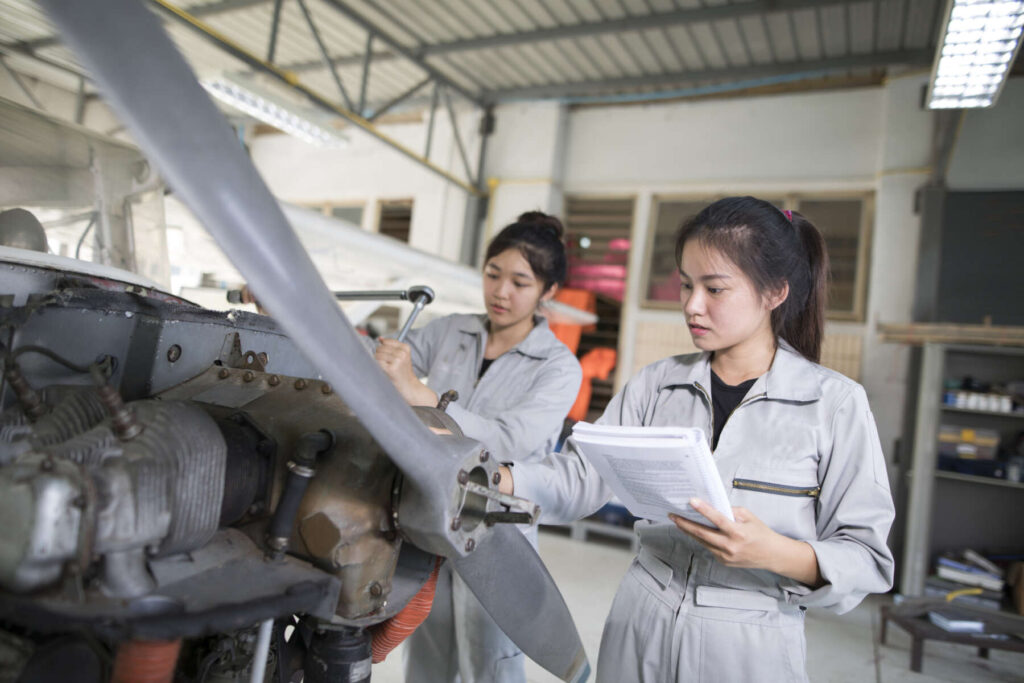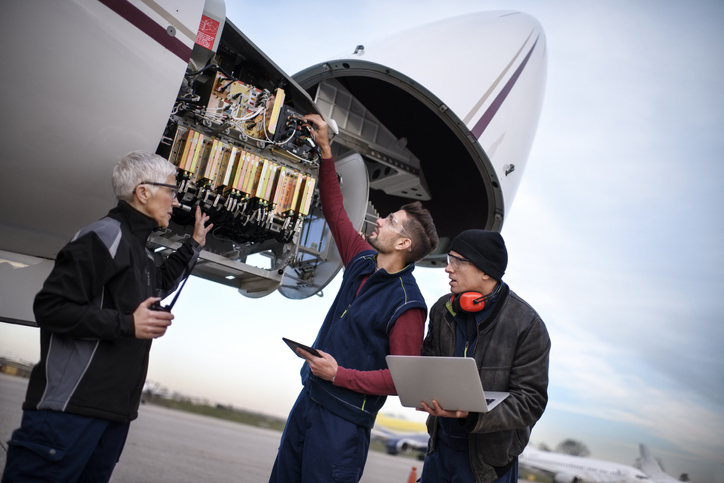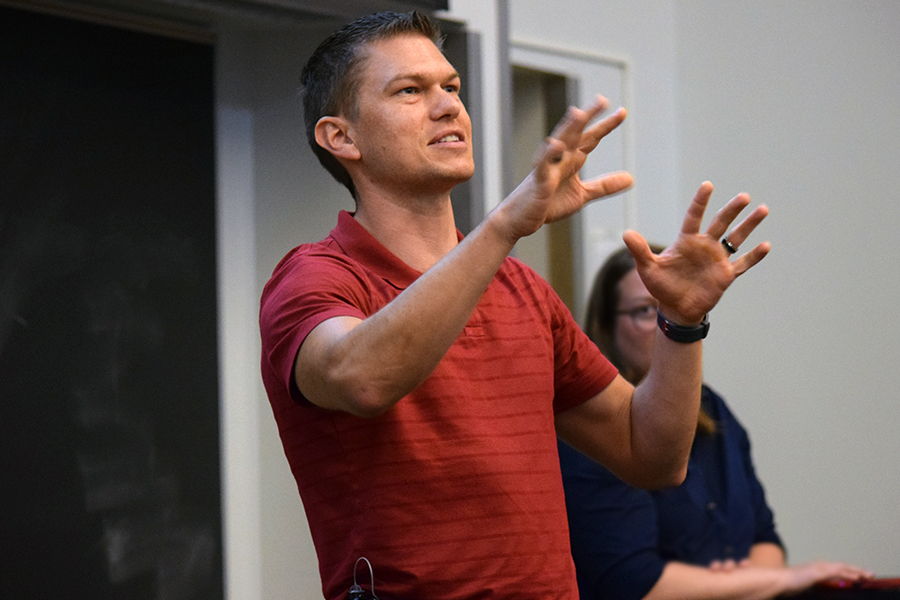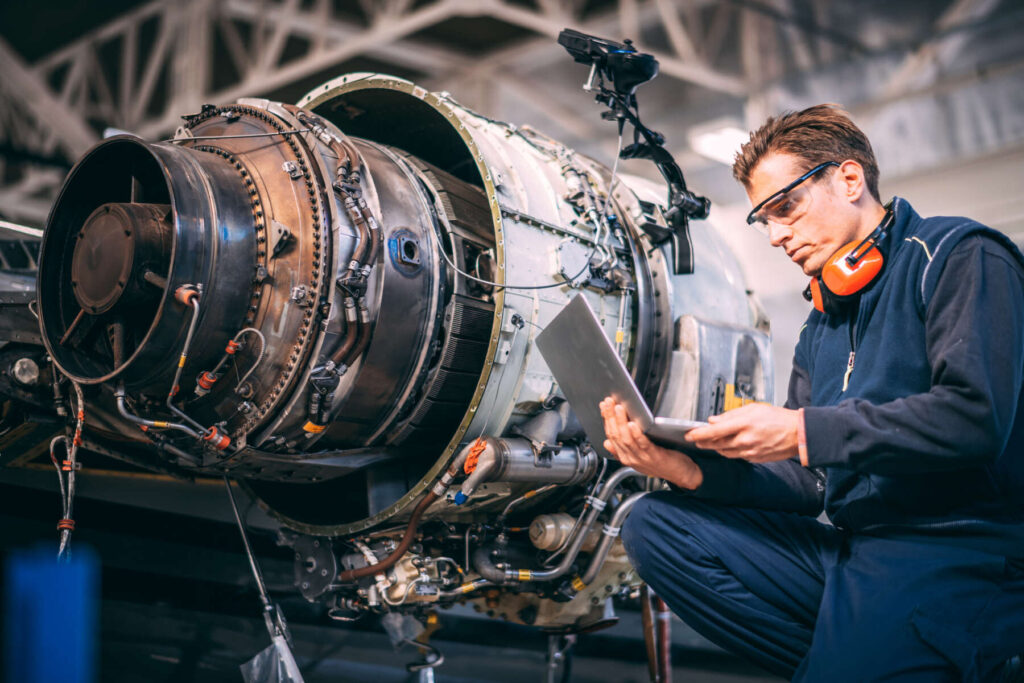Master of Science in Aeronautics and Astronautics
Designed for aspiring aerospace engineers who aim to push the boundaries of innovation and technology, this top-ranked program is designed for working engineers and offers flexible plans of study with a format that allows you to study from where you are. Purdue’s strong industry connections provide unmatched avenues for professional growth, equipping you to succeed in the dynamic fields of aerospace engineering.
Ready to Take Your Next Step?
Overview
Earn a Master of Science in Aeronautics and Astronautics online from a top ranked university
Purdue University’s online Master’s in Aeronautics and Astronautics provides students with a world-class education, led by the same esteemed faculty who teach on campus. The program covers aerodynamics, aerospace systems, astrodynamics & space applications, autonomy & control, propulsion, structures & materials, and more, allowing students to specialize in key areas that align with their career goals. Purdue’s faculty are leaders in aerospace research, advancing human space missions, autonomous aerial systems, and propulsion technologies.
Graduates emerge prepared to lead and innovate in the aerospace industry, equipped with cutting-edge knowledge and skills. With strong industry connections and extensive research opportunities, students gain access to unmatched professional growth. The School of Aeronautics and Astronautics equips graduates to lead and excel in the aerospace industry. Join us and become part of a community that is shaping the future of aerospace engineering.
The cost of attending Purdue varies depending on where you choose to live, enrollment in a specific program or college, food and travel expenses, and other variables. The Office of the Bursar website shows estimated costs for the current aid year for students by semester and academic year. These amounts are used in determining a student’s estimated eligibility for financial aid. You can also use our tuition calculator to estimate tuition costs.
Program Specifics

Math Background
We recommend a background in:
- Calculus 1, 2, and 3
- Differential Equations
- Linear Algebra
- Partial Differential Equations
- Statistics
- Physics 1 and 2
Undergraduate Degree
No formal prerequisites, but a BS in engineering or science disciplines is typical.
We prefer the following engineering disciplines: Aerospace, Mechanical, Electrical/Computer, Chemical, or Materials. Degrees in Math or Physics are also well suited. Test Scores Valid GRE score unless a waiver applies.

More information on courses and faculty can be found at the program website.
Degree Required Courses – 30 credits
- 4 courses (12 credits) in one of the six available focus areas within Aeronautics and Astronautics
- 2 courses (6 credits) in a secondary area
- 2 courses (6 credits) to meet the math requirement
- 2 technical electives (6 credits) which gives flexibility to take a wide range of courses that fit the student’s interest and goals

Customize your Plan of Study
Students will choose a focus area to best customize their education to meet their interests.
- Aerodynamics
- Aerospace Systems
- Astrodynamics & Space Applications
- Autonomy and Control
- Structures & Materials
- Propulsion
Each area combines theoretical, computational, and experimental methods, preparing students for the complex challenges of aerospace engineering. Purdue’s Enduring Legacy in Space Exploration Purdue is known as the Cradle of Astronauts® because of its extraordinary influence on the U.S. space program, specifically the 27 Boilermakers who have been chosen to become astronauts. Today’s generation of Boilermakers extends that proud tradition by contributing to projects that will further expand understanding of the cosmos.

AAE alum part of ‘awesome’ team awarded Collier Trophy
Meet Collin Drake, Flight Science Engineer and MSAAE Alumni “The quality of education is off the charts. I could not have asked for a higher-quality education, especially for a distance program. Because the quality of education was so high, I felt like it was just like being on campus as a student. I really liked that part about it. You have the same professors. You have the same TAs. You take the same tests. You do the same homework. You have the exact same lectures.”
For many professionals, earning a master’s degree can provide a big return-on-investment. In addition to financial benefits like salary increases and promotions, master’s degrees also help professionals learn in-demand skills, which can improve their job prospects, help them pivot to a new industry, or help them stay competitive in a rapidly changing market.
Many employers value the advanced skills that master’s programs teach, and research shows that job candidates with master’s degrees have average salary increases from 25% to more than 75% in select fields. Ask your enrollment counselor for details on Purdue’s online master’s programs or learn more about the benefits of earning a master’s here.
Career Outcomes

Top Job Titles
- Mechanical Engineers
- Engineering Managers
- Project Engineers
- Mechanical Design Engineers
- Principal Mechanical Engineers
Top Industries
- Search, Detection, Navigation, Guidance, Aeronautical, and Nautical System and Instrument Manufacturing
- Engineering Services
- Aircraft Manufacturing
Source: LightcastTM (2023). Unique job postings for July 2022-2023. Projected growth for years 2023-2033.
Contact Us
You are not alone in taking your next giant leap.
Get your questions answered, receive application help, or plan your degree journey by speaking with an enrollment counselor. Request more information today by filling out this form to connect with a Purdue University enrollment counselor and receive additional program materials.
Ready to Become a Purdue Boilermaker?
Are you ready to join the Purdue innovators and changemakers always striving to make giant leaps forward in our industries and fields? Start your application today!